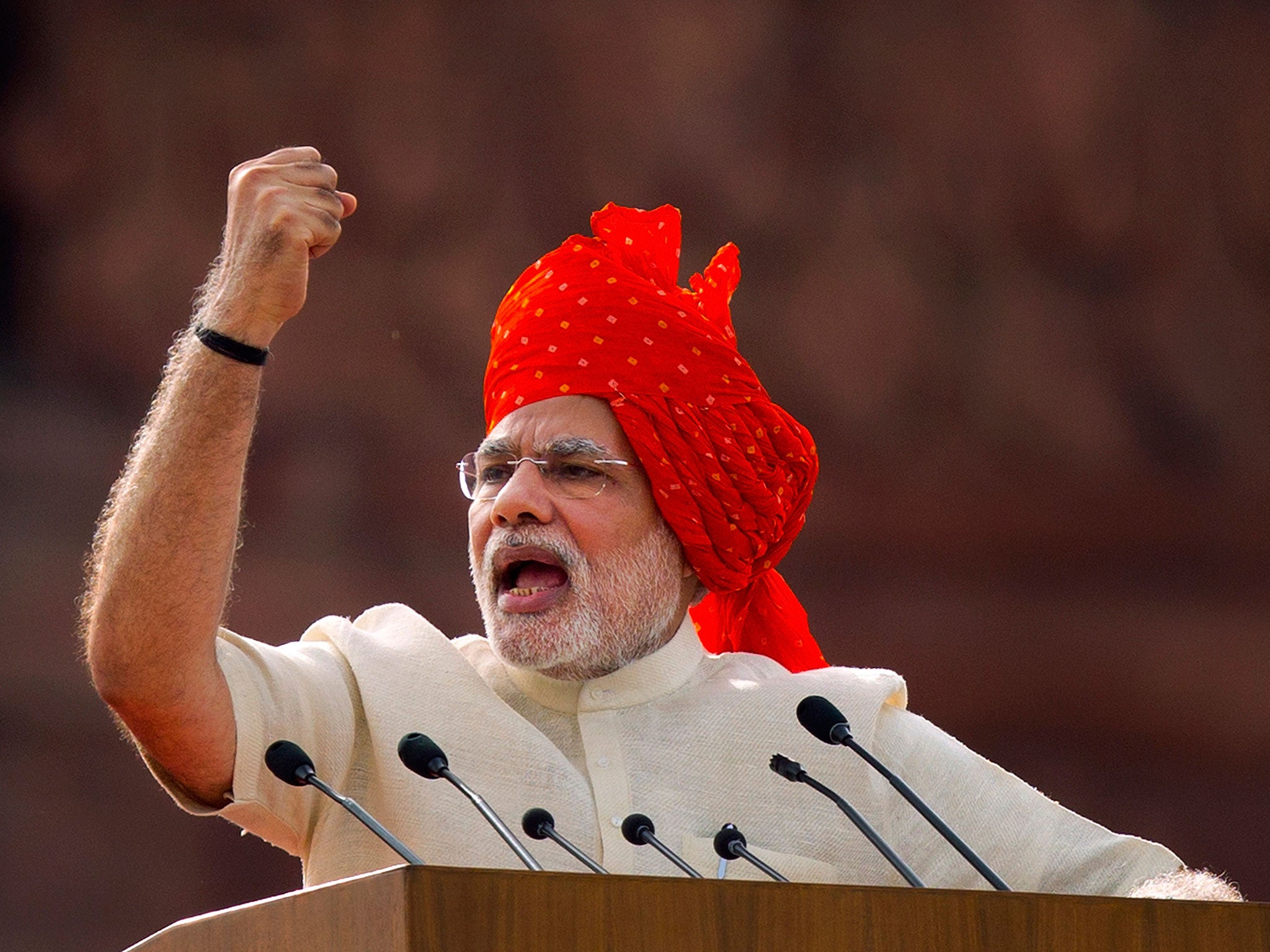Nick Clegg in India for trade talks with Narendra Modi
When he became Prime Minister, David Cameron said he wanted Britain to become India’s 'partner of choice'

Your support helps us to tell the story
From reproductive rights to climate change to Big Tech, The Independent is on the ground when the story is developing. Whether it's investigating the financials of Elon Musk's pro-Trump PAC or producing our latest documentary, 'The A Word', which shines a light on the American women fighting for reproductive rights, we know how important it is to parse out the facts from the messaging.
At such a critical moment in US history, we need reporters on the ground. Your donation allows us to keep sending journalists to speak to both sides of the story.
The Independent is trusted by Americans across the entire political spectrum. And unlike many other quality news outlets, we choose not to lock Americans out of our reporting and analysis with paywalls. We believe quality journalism should be available to everyone, paid for by those who can afford it.
Your support makes all the difference.Nick Clegg is today scheduled to hold talks in Delhi with Prime Minister Narendra Modi, the latest in a series of efforts by the UK to try to boost trade with India.
The Deputy Prime Minister, who will also meet finance minister Arun Jaitley, will lead a delegation of more than 40 British businesses, colleges and representatives of the aerospace industry. Among the businesses is a manufacturer of tonic water, seeking to exploit India’s history as the purported birthplace of gin and tonic.
Since Prime Minister Narendra Modi was elected in a landslide victory in May, a flurry of foreign leaders and ministers have been enduring the sweltering Indian summer to make their way to Delhi in an effort to try and secure trade agreements. Mr Modi, of the Hindu national Bharatiya Janata Party, was elected after a campaign in which he portrayed himself as someone who could oversee development and who was friendly to investors and businesses.
“I am delighted to be leading the first trade delegation to India since the election of the new government,” Mr Clegg said in a statement. “Prime Minister Modi has been very clear that his absolute priority is to get the wheels of the Indian economy moving, to create more jobs, boost trade and pursue greater prosperity.”
When he became Prime Minister, David Cameron said he wanted Britain to become India’s “partner of choice”. He has made three trips here, and is due to come again later in the year.
Britain was also among the very first Western countries to end a decade-long boycott of Mr Modi, a former chief minister of the state of Gujarat, who was black-listed following the killing of hundreds of Muslims in his state in 2002.
Yet India has yet to reciprocate with a Prime Ministerial visit to Britain. Likewise, for all the talk by UK ministers of Britain and India being natural partners, the UK is one of just many countries sending out warm messages to Delhi, and Mr Cameron’s efforts have only rewarded modestly.
Last month, during a visit by William Hague and George Osborne, it was announced that a deal worth £250m had been agreed for a British manufacturer to provide missiles to the Indian Air Force. But the arms deal Britain had been lobbying for, a £6.6bn contract to provide 126 fighter aircraft, instead went to France in January 2012.
Meanwhile, other foreign visitors to India this summer have included Chinese foreign minister Wang Yi, Laurent Fabius, the French foreign minister, and Dmitry Rogozin, Russia’s deputy prime minister.
Mr Clegg’s office has declined to provide specific details of his visit but Indian media reported that he will be making several announcements relating to science and education. The Hindu newspaper said he would sign a partnership between the University of Dundee and the National Centre for Biological Sciences when he visits the southern city of Bangalore.
It said he will also announce a collaboration between the University of Edinburgh, the Christian Medical College in Vellore, and the Indian Christian Medical and Dental Association, for a new distance learning degree.
During the three day visit, during which he will be accompanied by his new, unpaid India business adviser Lord Dholakia, Mr Clegg will also visit officials in Mumbai, India’s business capital.
“There is already £16bn of trade every year between India and the UK,” Mr Clegg’s statement continued. “India invests more in the UK than it does in the rest of the European Union combined, and no country in the G20 invests more in India than Britain does.”
Among the British businesses taking part in the trip is Fever-Tree, the soft drinks manufacturer. The company believes there is lots of potential for its products in India, particularly its tonic water.
“India is now one of the five largest gin markets in the world and will provide us with a long-term platform for growth,” said the company’s Charles Rolls. “Traditionally a whisky market, white spirits have grown in the region in recent years and we hope to capitalise on the popularity of Western drinking habits in bars, restaurants and hotels.”
Join our commenting forum
Join thought-provoking conversations, follow other Independent readers and see their replies
Comments